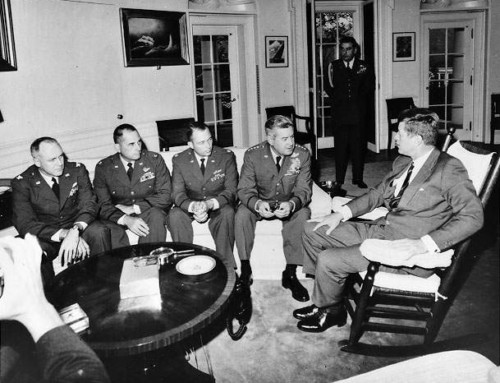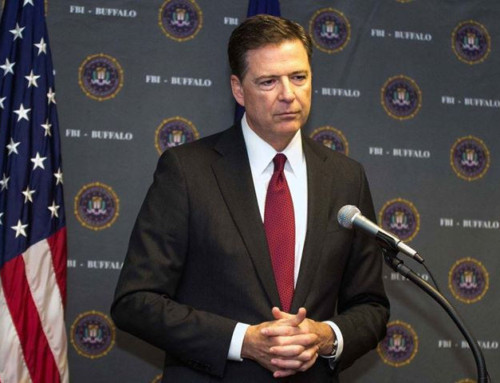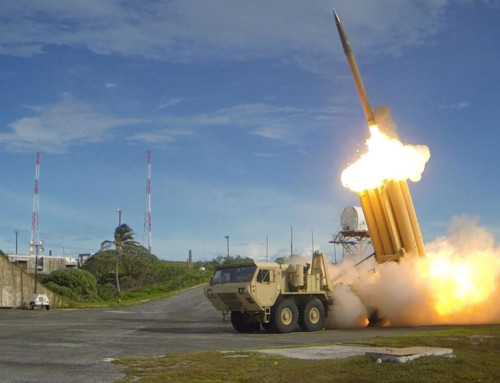Continuation of original article
Trivia question: What do the American Left and the rioters in Greece have in common? Answer: Both are in arithmetic denial.
In Lessons from Fallen Civilizations, (see excerpt below) I write that President Kennedy was the last American president to draw strong support from both parties, the Left and the Right. At his inauguration, the country was united in a singularity of purpose. But on November 22, 1963, two and a half years later, President Kennedy was assassinated by an American defector to the Soviet Union, Lee Harvey Oswald.
James Piereson, in Camelot and the Cultural Revolution, writes: On that horrible day, from Dallas to Washington DC aboard Air Force One, Lady Bird Johnson, the Vice President’s wife, urged Jacqueline Kennedy to change out of her blood-spattered clothes.
“No,” Jacqueline replied more than once, “I want them to see what they have done.”
Her response begs the questions—exactly who were “they?” And what did “they” do?
(Book Excerpt) Liberalism had attached itself to the Democrat Party and was by far the dominant political ideology of the country and controlled a vastly larger portion of the American electorate. While it did not use overt Marxist phraseology, for each according to his need, from each according to his means, this was a central pillar of liberalism. It proudly advocated the redistribution of wealth, while ambivalent about how the US should use its power to halt Communist expansion. While liberalism proclaimed itself to be anti-communist, it rejected nationalism and, by 1955, it was internationalist and accomodationist to Soviet expansion.
Liberalism, according to its most authoritative proponents, held that those who did not subscribe to its tenants were conspiratorial, bigoted, and delusional. Moreover, as Schlesinger proclaimed in his book, The Vital Center, liberalism was no longer a belief that resided on the political spectrum to the left of anything. Despite the fact that the country elected aging war hero Dwight Eisenhower, a Republican, to two terms as president, by the close of the decade, polling data confirmed that liberalism had become the central organizing American political philosophy.
When their leader, JFK, was killed by a committed Communist, it posed a crisis for liberals, from which Pierson contends (and I agree), they have not recovered. It threatened to falsify their world view. Jacqueline Kennedy’s pronouncement that she would wear her blood spattered dress for the DC press, so America would see what “they” had done, became the formula for how the liberal establishment responded to the assassination. In thousands of op-ed’s, speeches, and treatises across the country, the massive liberal establishment proclaimed that JFK was a martyr, killed by a “climate of hate,” and was “a victim of bigotry.” Within a week of the president’s death, the former First Lady invited Theodore White of Life Magazine to come to the Kennedy compound in Hyannis. She pressed the compliant journalist assigned to memorialize the Kennedy presidency to emphasize the Camelot motif, and memorialize her husband as an American Arthur, the man who died both on behalf of and at the hands of his own people. For Jackie and the Left, he was not a victim of communist infiltration. There was no place in their new mythology for Lee Harvey Oswald.
Oswald’s identity and act of assassination were not possible, by definition in the liberal world view. Ironically, although it was they who claimed the mantle of superior rationality and accused the Right of conspiratorial hatred, nearly every liberal leader, including Schlesinger himself, proclaimed that Kennedy was really a victim of a climate of hate, spawned by a nebulous force. If pressed for the true villain, they would say that Kennedy was a victim of the radical Right. The American Left became so pathologic that they continue to see their political enemies as a greater threat than external enemies—Soviets who targeted our cities with thousands of nuclear weaponized missiles or militant Islam seeking to detonate smuggled nuclear weapons inside our cities. Additionally, in the years following Kennedy’s death, liberalism made the leap from irrationality to its ultimate weakness—loss of civic virtue. Prominent liberal authors and pundits suggested that Oswald was not really a committed Communist, but a contract assassin hired by an agency of the American government. This would not be the last time that prominent liberals in leadership roles would accuse the country of egregious crimes. It would be just the beginning.





